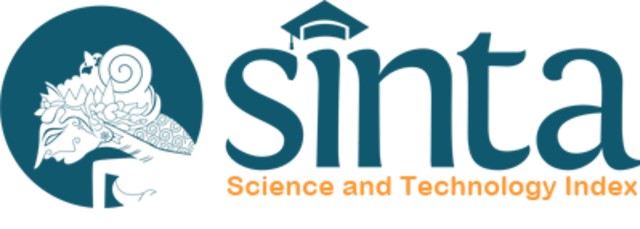Analisis Penerapan Manajemen Agile Pada PT Telekomunikasi Indonesia Divisi Digital Service
Abstract
PT Telekomunikasi Indonesia is a state-owned enterprise which specializing in telecommunication and information technology. This research purpose is to identify which factors that influenced in the management method application process in post-transition from traditional management method (Waterfall) and after agile management method. Sample in this research came from PT Telekomunikasi Indonesia Digital Service Division with job position ranged from Officer 2 and the sampling using the questionnaire which validated with Kendall’s W and with amount of the respondent is 19 respondents. The analysis method is using Fuzzy-Analytic Hierarchy Process (F-AHP) and the validation is using MATLAB. The research is using category criteria which are Human Resourcing (HR), coordination, technology, project management and software methodology. Next step analyzing every category with their influenced factors. The result is showing that Human Resourcing (HR) become the most influenced category in every management method application, traditional management method (Waterfall) or agile management method.
Downloads
References
Berg V, Birkeland J, Nguyen-Duc A, Pappas IO, Jaccheri L. 2020. Achieving agility and quality in product development - an empirical study of hardware startups. Journal of Systems and Software 167.
Bögel P, Pereverza K, Upham P, Kordas O. 2019. Linking socio-technical transition studies and organisational change management: Steps towards an integrative, multi-scale heuristic. Journal of Cleaner Production 232:p.359–368.
Bredin K, Söderlund J. 2007. Reconceptualising line management in project-based organisations: The case of competence coaches at Tetra Pak. Personnel Review 36(5):p.815–833.
Drury-Grogan ML. 2014. Performance on agile teams: Relating iteration objectives and critical decisions to project management success factors. Information and Software Technology 56(5):p.506–515.
El-wakeel F. 2019. FURTHER DEMYSTIFICATION OF AGILE PROJECT MANAGEMENT. Strategic Finance 101(2):p.76–77.
Fernandez DJ, Fernandez JD. 2008. Agile project management - Agilism versus traditional approaches. Journal of Computer Information Systems 49(2):p.10–17.
Gablas B, Ruzicky E, Ondrouchova M. 2018. The Change in Management Style during then Course of a Project from the Classical to the Agile Approach. Journal of Competitiveness 10(4):p.38–53.
Galvan S, Mora M, O’Connor R V., Acosta F, Alvarez F. 2015. A Compliance Analysis of Agile Methodologies with the ISO/IEC 29110 Project Management Process. Procedia Computer Science 64:p.188–195.
Ganney PS, Pisharody S, Claridge E. 2013. Software Engineering,
Gong Y, Janssen M. 2012. From policy implementation to business process management: Principles for creating flexibility and agility. Government Information Quarterly 29(SUPPL. 1):p.S61–S71.
Jerbrant A. 2014. Improving and E mbedding Project M anagement Practices in O rganisations : A M ixed Methodology A pproach. South African Journal of Economic and Management Sciences 2014(17):p.1–19.
Kraft C. 2018. Management on Government Finance Projects. The Journal of Government Financial Management 67(1):p.12–18.
Kropp M, Meier A, Anslow C, Biddle R. 2020. Satisfaction and its correlates in agile software development. Journal of Systems and Software 164:p.110544.
Mansor Z, Yahya S, Arshad NH. 2013. Empirical Study of Cost Management Success Determinants in Agile based Software Development Project: A Rasch Measurement Model Analysis. Procedia - Social and Behavioral Sciences 107:p.129–135.
De Melo CO, S. Cruzes D, Kon F, Conradi R. 2013. Interpretative case studies on agile team productivity and management. Information and Software Technology 55(2):p.412–427.
Mergel I. 2016. Agile innovation management in government: A research agenda. Government Information Quarterly 33(3):p.516–523.
Parker, D., Verlinden, A., Nussey, R., Ford, M., & Pathak RD. 2013. Critical evaluation of project-based performance management. International Journal of Productivity and Performance Management 62(1):p.407–419.
Pedersen M. 2013. A quantitative examination of critical success factors comparing agile and waterfall project management methodologies. ProQuest Dissertations and Theses (September):p.189.
Rao P, Qiao L, Yang Z. 2016. Preparation of Papers for IFAC Conferences & Symposia: A framework of agile data management in product lifecycle based on rapid data view transformation. IFAC-PapersOnLine 49(12):p.1596–1601.
Schuh G, Gartzen T, Soucy-Bouchard S, Basse F. 2017. Enabling Agility in Product Development through an Adaptive Engineering Change Management. Procedia CIRP 63:p.342–347.
Shameem M, Kumar RR, Nadeem M, Khan AA. 2020. Taxonomical classification of barriers for scaling agile methods in global software development environment using fuzzy analytic hierarchy process. Applied Soft Computing Journal 90:p.106122.
Stachowiak A, Hadaś Ł, Cyplik P, Fertsch M. 2013. Decision model for sustainable and agile resources management. IFAC Proceedings Volumes (IFAC-PapersOnline) 46(9):p.1140–1145.
Takeuchi H, Nonaka I. 1986. The new new product development game: Stop running the relay race and take up rugby. Harvard Business Review 64(1):p.137–147.
Winby S, Worley CG. 2014. Management processes for agility, speed, and innovation. Organizational Dynamics 43(3):p.225–234.















